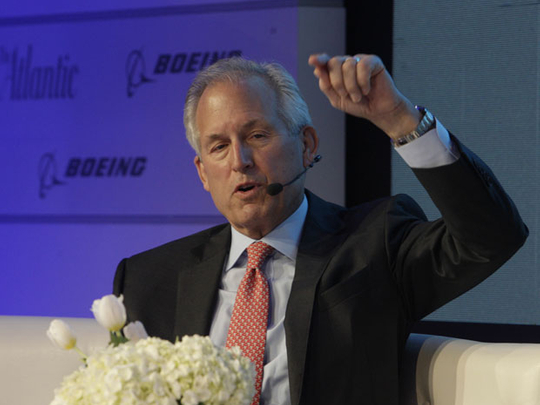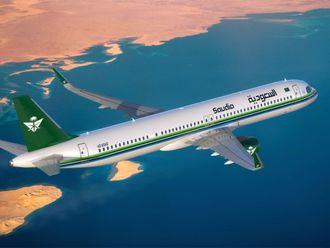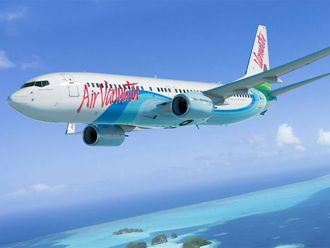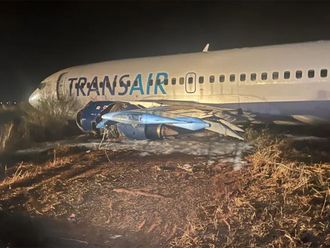
Abu Dhabi: The Gulf carriers’ business model of operating long-haul flights through a single hub will be sustainable for “many decades” as its eats further into European and American market share, Boeing Co’s chief executive, Jim McNerney, said on Wednesday.
The Gulf airlines, predominantly Emirates, Etihad Airways and Qatar Airways, have played off their geographical location to establish themselves as some of the most influential airlines in the world.
“The business model is obviously successful today; the [United Arab] Emirates have essentially become the Hong Kong of this century,” McNerney said in Abu Dhabi.
Hong Kong, utilising its location in Asia, established itself as a major logistics hub in the 20th century.
McNerney, who was speaking at “What’s Next? Navigating Global Challenges with the Innovation Generation” summit, said the hub business model is likely to drive further growth among Gulf carriers.
“Given the technology I see available, which is the size and range of the airplanes, I think that this business model will be sustainable,” he said.
The region’s three major airlines have developed their own strategies tied into the long-haul single hub model. Qatar Airways is a member of oneworld airline alliance, and Etihad Airways is buying up stakes in a number of foreign carriers to give them reach into new markets and drive traffic into its Abu Dhabi hub. Emirates, meanwhile, has focused on building its growth organically, apart from a shared revenue tie up with Australia’s Qantas. “Until there is a huge step [up in] function range or capacity beyond what I can see today, I think this purpose will continue to be very, very competitive here,” McNerney said on the Gulf’s aviation hub strategy.
Backlog
The region’s carriers represent some of Boeing’s largest customers. Emirates has 202 aircraft on backlog from Boeing, Eithad Airways has 97 [Boeing aircraft] still to be delivered from previous orders, and Qatar Airways has 66. Elsewhere in the region, Saudi Arabian Airlines, Gulf Air, Royal Jordanian and Iraqi Airways have a collective backlog of 89 aircraft, according to Boeing.
McNerney further said that the Europeans “will fight back” as the Gulf airlines wrest more market share, “the Indians will try and compete and the Asians will try and fly over” the Gulf.
“There is more market share available in Europe and America as this region competes with legacy carriers. They [Gulf carriers] are putting a lot of pressure on them,” he said.












